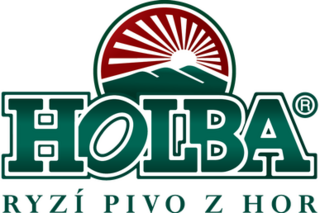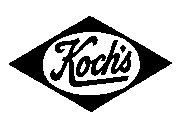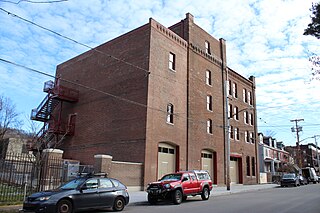
Westmalle Brewery is a Trappist brewery in the Westmalle Abbey, Belgium. It produces three beers, designated as Trappist beer by the International Trappist Association. Westmalle Tripel is credited with being the first golden strong pale ale to use the term Tripel.

Spoetzl Brewery is a brewery located in Shiner, Texas, United States. It produces a diverse line of Shiner beers, including their flagship Shiner Bock, a dark lager that is now distributed throughout the US. The brewery is owned by the Gambrinus Company, a family-owned company based in San Antonio, which also owns Trumer Brewery in Berkeley, California.

In the United States, beer is manufactured in breweries which range in size from industry giants to brew pubs and microbreweries. The United States produced 196 million barrels (23.0 GL) of beer in 2012, and consumes roughly 28 US gallons (110 L) of beer per capita annually. In 2011, the United States was ranked fifteenth in the world in per capita consumption, while total consumption was second only to China.
City Brewing Company is a large brewery located in La Crosse, Wisconsin, USA. It is the former flagship facility of the Heileman Brewery, and can brew up to 7 million barrels of beer a year. Its twin-stream brewhouse can manage 16 brews of 1,100 barrels per day at the same time.

Genesee Brewing Company is an American brewery located along the Genesee River in Rochester, New York. From 2000 to 2009, the company was known as the High Falls Brewing Company. In 2009, High Falls was acquired by the capital investment firm KPS Capital. Together with newly acquired Labatt USA, KPS merged the two companies as North American Breweries. Along with this change, High Falls Brewery changed its name back to the original "Genesee Brewing Company" operating under the North American Breweries name. In October 2012, North American Breweries was purchased by FIFCO.

Pivovar Holba is a brewery located in Hanušovice, Czech Republic. The major owner is a brewer company Pivovary CZ Group a.s. Annual production is over 350,000 hectoliters. The most notable product is Holba Šerák, a medium strong beer, named after the nearby mountain. The motto of the brewery is Pure Beer from Mountains.

Upland Brewing Company, established in 1998 in Bloomington, Indiana, United States is the third largest brewery in the state. The company's main Production Brewery, which includes a recently reopened taproom, serves as the primary facility for brewing operations. Upland also operates The Wood Shop, a specialized sour ale brewery and event space, where its award-winning sour beers are crafted.
Aztec Brewing Company was a regional brewery founded in Mexicali, Mexico, in 1921, which moved to San Diego, California, in 1933. It closed in 1953, and was revived as a brand in 2011. It is the only brewing company ever to move from Mexico to the United States.

The original Fred Koch Brewery was a small, independent brewery in Dunkirk, New York that produced beer and ale from late 1888 until 1985. Production peaked in the early 1950s with over 100,000 barrels brewed annually. When the Dunkirk, New York brewery was closed in 1985, it was located at 15-25 West Courtney Street.
The Storz Brewing Company was located at 1807 North 16th Street in North Omaha, Nebraska. Established from a company started in 1863, Storz Brewing began in 1876 by Gottlieb Storz and was owned by the Storz family until 1966; the brewery ceased operations in 1972. Their beers won several prizes in international competitions, and Storz was the top selling brand in Nebraska starting in World War II. Storz was one of the "Big 4" brewers located in Omaha, which also included the Krug, Willow Springs and Metz breweries. On August 8, 2013, it was announced the brand would be revived by Tom Markel, nephew of Monnie Storz Markel, the granddaughter of Gottlieb Storz, with his cousin John Markel, son of Monnie Storz Markel as investor.
Heineken N.V. is a Dutch brewer which owns a worldwide portfolio of over 170 beer brands, mainly pale lager, though some other beer styles are produced. The two largest brands are Heineken and Tecate; though the portfolio includes Amstel, Fosters, Sagres, Cruzcampo, Skopsko, Affligem, Żywiec, Starobrno, Zagorka, Zlatý Bažant, Laško and Birra Moretti.

The Malt Shovel Brewery is an Australian brewery owned by Lion, a subsidiary of the Japanese conglomerate Kirin. It is located in Camperdown, New South Wales. Malt Shovel is best known for its James Squire range of beers. The beer is named after the convict turned Australia's first brewer James Squire, who also went on to grow Australia's first hops and is said to have created Australia's first commercial brewery.
The Mink Building is a five-story German-American style red brick structure at 1361-1369 Amsterdam Avenue between 126th and 128th Streets, in the Manhattanville neighborhood of Manhattan, New York City, originally part of a large brewery complex. It is one of a few buildings that remain of a vast beer brewing industry in this area in the late 19th century, beer brewing was an industry as big as finance or real estate in the 21st century New York City. The site of the complex at 1361 Amsterdam Avenue in Manhattan - predating residential development in Harlem - was chosen due to its relative isolation at the time.

Cream ale is a style of American beer that is light in color and well attenuated, meaning drier. First crafted in the mid-1800s at various breweries in the United States, cream ale remained a very localized form with different styles until the early 20th century. During Prohibition in the United States, a great number of Canadian brewers took up brewing cream ale, refining it to some degree. Following the end of Prohibition, cream ale from Canada became popular in the United States and the style was produced anew in both nations.

The Duquesne Brewing Company was a major brewery in Pittsburgh, Pennsylvania, from its founding in 1899 until its dissolution in 1972. The brand was revived under the name Duquesne Brewing Company in 2008, in order to re-establish the beer in Western Pennsylvania starting in the summer of 2010.

San Diego County, California, has been called "the Craft Beer Capital of America". As of 2018, the county was home to 155 licensed craft breweries – the most of any county in the United States. Based on 2016 sales volume, three San Diego County breweries – Stone, Green Flash, and Karl Strauss – rank among the 50 largest craft brewers in the United States. San Diego County brewers pioneered the specialty beer style known as Double India Pale Ale, sometimes called San Diego Pale Ale. Its beer culture is a draw for tourism, particularly during major festivals such as San Diego Beer Week and the San Diego International Beer Competition. San Diego County breweries including Stone Brewing Co., AleSmith Brewing Company and Ballast Point Brewing Company are consistently rated among the top breweries in the world.

Jax Brewing Company, originally Jacksonville Brewing Company, was a regional brewery in Jacksonville, Florida operating from 1913 to 1956. It was the second brewery to open in the state, after Florida Brewing Company in Tampa in 1896.
The Cream City Brewing Company was an American brewery that was located in Milwaukee, Wisconsin from 1853 until 1937. The brewery was one of seven to survive Prohibition in the city. One structure remains from the old brewery complex; a 25,000 square-foot horse stable built in 1910 that housed over forty horses to pull beer wagons.
The William Gerst Brewing Company was a beer-maker located in Nashville, Tennessee. Originally named the Nashville Brewing Company, which opened in 1859, the operation was purchased in 1890 and operated as the William Gerst Brewing Company. The Nashville Brewing Company was occasionally renamed, with other company names including the Nashville Brewery, Stifel & Pfeiffer Brewery, South Nashville Lager Beer Brewery, and Moerlein-Gerst Brewing Company. I 1893 it became the William Gerst Brewing Company, in a facility completely rebuilt on the same property, which remained in operation until the company closed in 1954.

The Hazelwood Brewing Company is an historic brewery complex which is located in the Hazelwood neighborhood of Pittsburgh, Pennsylvania.



























